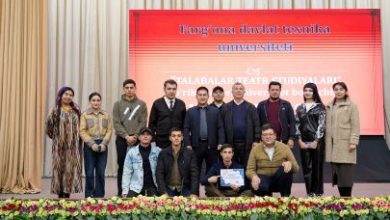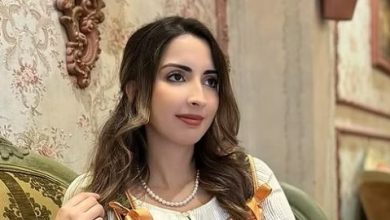The Blind Voice of Tharparkar

Muhammad Yousif Faqir, visually impaired, is the Voice of Hope
Presence of Yousif Faqir at Kasbo temple has become symbolic of Thar’s cultural identity
By Ali Nawaz Rahimoo
For most of the year, Tharparkar lies quite a desert of endless dunes and sunbaked silence. But when the monsoon clouds gather and rain finally falls, the land transforms. Cracked earth drinks greedily from the sky, grass carpets the dunes, and the entire desert comes to life. This short-lived season of renewal brings more than just greenery it awakens the soulful music of the Manganhars, the traditional folk musicians of the region. The Manganhars of Sindh are more than just singers. They are oral historians, storytellers, and cultural custodians, especially prominent in Tharparkar and Nagarparkar. For centuries, they have preserved a treasure trove of Sindh’s folk music, spiritual poetry, and ancient tales all passed down through generations. Their melodies echo from sacred sites across the desert from Jain temples to Muslim shrines and Hindu Mandirs forming a musical bridge across faiths and communities.
Tharparkar, a region celebrated for its striking desert landscapes, rich history, and vibrant culture, has long been home to talented folk musicians. Among its brightest voices is Muhammad Yousif Faqir a blind singer from Kasbo, a small village near Nagarparkar, on the Pakistan-India border. Muhammad Yousif Faqir has earned wide acclaim for his soulful renditions of Sufi poetry. He breathes life into the verses of Shah Abdul Latif Bhitai, Bhagat Kabir, and Meera Bai. To connect with his harmonium, he covers it with cloth, relying on touch to guide his fingers and heart to guide the melody. Yousif receives a modest stipend from the Sindh government, but most of his income comes from the admirers who travel across the country and sometimes from abroad to witness his moving performances. One such guardian of this fading heritage is Muhammad Yousif Faqir, a blind folk singer whose presence at Kasbo Mandar (temple) has become symbolic of Thar’s cultural identity. Seated under a neem tree, beside a broken harmonium, Yousif Faqir sings in Marwari and Dhatki, the desert’s native tongues. Blind since birth, his voice is filled with pathos and devotion stirring emotions in listeners, often bringing tears. When visitors approach the temple during the Sawan (monsoon) season, they are welcomed not with words, but with his song, a sorrowful, soulful expression of longing and joy. His son accompanies him on the tabla, and together they perform for pilgrims and travelers. “I cannot move around like other Manganhars who sing at weddings,” says Yousif. “So I stay here. This temple is my stage, my home, and my only means to earn a living.” In his old age, frailty has crept in, and a cousin now helps by pumping air into the harmonium while Yousif sings. Still, the power in his voice remains undiminished echoing the peacock’s cry across the desert, calling not only for rain but for remembrance.
Traditionally, the Manganhars have been more than just musicians; they were the soul of every celebration. With their heartfelt songs and rhythms, they brought happiness wherever they performed. Their role was deeply rooted in community life, earning them not only admiration but also trust and honor. Because of their selfless dedication to uplifting others, they were often entrusted with more than just entertainment they served as advisors to rulers in ancient times, dating as far back as the era of Alexander the Great, who traversed these lands. Manganhars, traditionally Muslim, often served Hindu Rajput patrons, reflecting a history of peaceful coexistence and mutual respect in Sindh’s syncretic society. Their songs are rich in Sufi devotion, folk romance, ritual traditions, and seasonal celebrations:
- Ballads of Shah Abdul Latif Bhittai, Sachal Sarmast, Tales of Umar-Marui, Moomal-Rano, and Sorath-Rai Diyach
- Songs of rain, harvest, and hope, Melodies marking births, weddings, and festivals
They perform using traditional instruments like the kamaycha, dholak, tabla, harmonium, and algoza, keeping ancient rhythms and ragas alive.
Across the desert, they have sung at Jain temples, Hindu Mandirs, and Muslim dargahs making them living symbols of unity through art.
A Fading Heritage
Yet, this precious heritage stands at a crossroads. Modernization, economic hardship, and lack of institutional support have pushed many Manganhars to abandon their ancestral art. The younger generation is drifting away from this demanding tradition, and many of the old instruments and songs risk fading into silence. Despite these challenges, Manganhars like Yousif Faqir remain resilient their voices enduring even as their bodies grow weary. Their music is not just a source of livelihood, but a lifeline to identity, memory, and cultural survival.
To hear Yousif sing beneath the neem tree at Kasbo Mandar is to witness the soul of Thar weathered but unbroken, ancient yet timeless. His voice carries the spirit of a desert that still dares to bloom after every rain, and of a people whose music continues to echo through the dunes, waiting to be heard, respected, and preserved.
His contributions have been recognized with numerous awards, yet now, after a lifetime of music, Yousif wishes to slow down. His new mission is to pass on his gift to the next generation. That legacy is already taking root his son and grandson now sing alongside him, carrying forward the voice of the desert with passion and devotion.
Read: A Season of Life, Beauty, and Revival
______________
 Ali Nawaz Rahimoo, based in Umerkot, Sindh is a social development professional. He can be contacted on anrahimoo@gmail.com
Ali Nawaz Rahimoo, based in Umerkot, Sindh is a social development professional. He can be contacted on anrahimoo@gmail.com





Mohammad Yousif Faqir is an exceptional singer. Though he is blind, his voice is truly heart-touching and deeply moving. I visited Nangarparkar last year, and had the privilege of hearing him sing live. His soulful performance left a lasting impression on everyone present.
Muhammad Yousif Faqir is truly the Voice of Hope. I have visited him three times, and each time, his singing left a deep emotional impact. He performs soulful poetry with such passion and sincerity that it touches the heart. Sitting in front of the temple in Kasbo village , his presence and voice create a spiritual atmosphere that moves every listener.